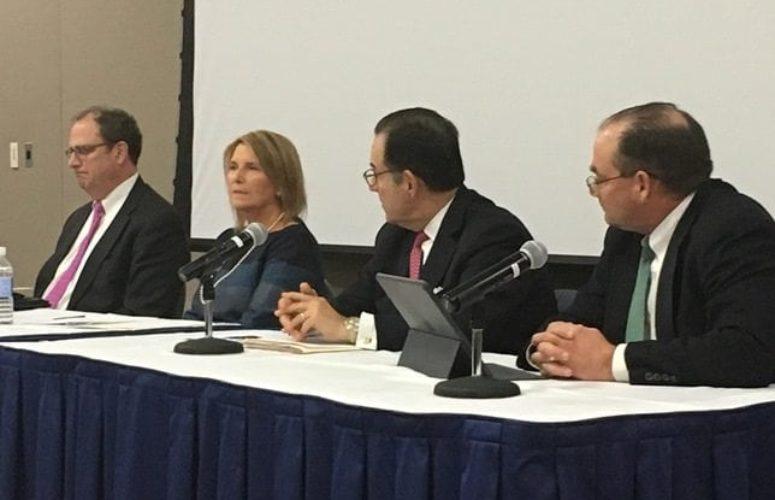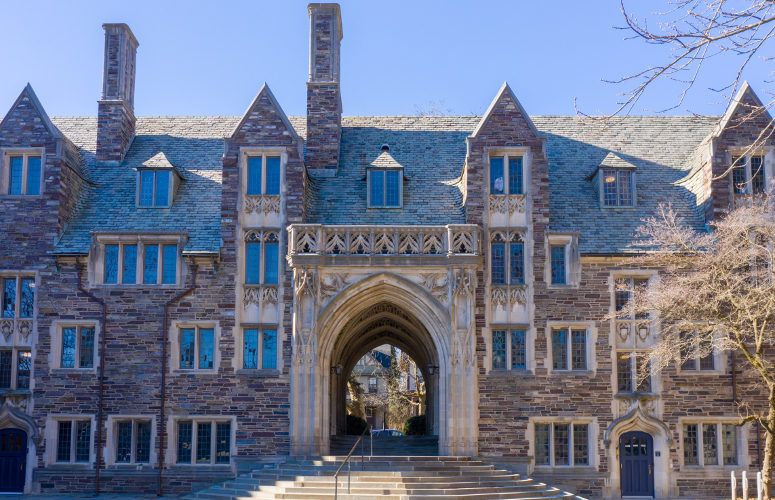
Healthcare Leaders Discuss Disruption and Innovation
By Jim Pytell, Assistant Editor On Apr 30, 2018Last Friday, the 2018 New Jersey Healthcare Stakeholders Summit was held at the New Jersey State Hospital Association’s (NJHA) headquarters in Princeton. The joint conference brought together representatives spanning New Jersey’s various healthcare communities, and those in attendance witnessed collaborative discussions about the state of healthcare, including the challenges and opportunities that the industry faces.
Cathleen Bennett, president and CEO of NJHA; Larry Downs, CEO, Medical Society of New Jersey; Dean Paranicas, president and CEO, HealthCare Institute of New Jersey (HINJ); and Ward Sanders, president, New Jersey Association of Health Plans, took part in a panel discussion addressing state-level impacts on their respective sectors. Notably, they addressed how current political and regulatory instability on the federal level is being felt in New Jersey.
Sanders explained that the individual healthcare market – primarily for those who are self-employed or in between jobs – is where most of the disruption has occurred, stating that the biggest barrier to access to coverage remains affordability.
Bennett added that fragmentation and a lack of alignment are further complicating things.
“[On one hand] you have your foot in the world that was created by the Affordable Care Act (ACA),” she said. “And [on the other hand], you have this other world from the federal perspective that is saying, ‘We want to leave it up to you [the states]. We want you to be innovative and to create alignment, and to keep people who are not sick from getting sick.’”
“Ultimately, all of us are in this for the benefit of the patients,” Paranicas said. “Predictability and stability are vitally important in terms of us being able to do what we do for the benefit of the patients. Any time you have a disruption, it impacts your planning, structuring and how you deliver your services and products.”
“Much of the federal policy that’s been adopted through the ACA, and even in our state policy, has really put a tremendous administrative burden on doctors,” said Downs, who noted that physicians spend two hours on paperwork for every hour of patient care. “Simplifying the administrative burden is a key part of the work that the Medical Society is doing now.”
In addition to discussing industry challenges, the panel touched on the importance of innovation, and how the state continues to foster a supportive environment for cutting-edge growth in healthcare.
Paranicas highlighted how interconnectivity between sectors can lead to industry altering innovations in the future such as new purchasing and delivery structures.
“This interconnectivity is going to be where this all has to go,” he said. “[I think] the pace is going to continue because the products are going to become increasingly more sophisticated, mobile and portable – elements that are critical to ensure that we keep our patients healthier on a proactive basis as well as after they are diagnosed.”
“We have to rethink how we interact with patients,” Bennett said. “That’s the biggest innovation and the common theme that you see across everything that the hospitals are doing today.”
To access more business news, visit njbmagazine.com
Related Articles:





